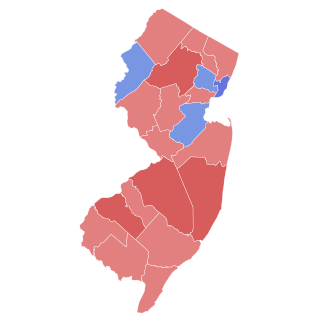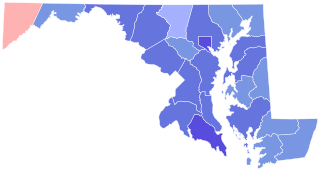
William Jason Fields was an American politician from the U.S. state of Kentucky. Known as "Honest Bill from Olive Hill", he represented Kentucky's Ninth District in the U.S. House of Representatives from 1911 to 1923, resigning to become the state's 41st governor.

The 2008 congressional elections in Colorado were held on November 4, 2008, to determine who will represent the state of Colorado in the United States House of Representatives, coinciding with the presidential and senatorial elections. Representatives are elected for two-year terms; those elected served in the 111th Congress from January 3, 2009, until January 3, 2011.

The 2008 congressional elections in Michigan were held on November 4, 2008, to determine who would represent the state of Michigan in the United States House of Representatives. Michigan had fifteen seats in the House, apportioned according to the 2000 United States census. Representatives are elected for two-year terms; those elected will serve in the 111th Congress from January 3, 2009, until January 3, 2011. The election coincided with the 2008 U.S. presidential election.

The United States House of Representative elections of 2008 in North Carolina were held on November 4, 2008, as part of the biennial election to the United States House of Representatives. All thirteen seats in North Carolina, and 435 nationwide, were elected to the 111th United States Congress. The party primary elections were held on May 6, 2008.

The 2010 United States House of Representatives Elections in Florida were held on November 2, 2010, to determine who would represent the state of Florida in the United States House of Representatives. Representatives are elected for two-year terms; those elected served in the 112th Congress from January 2011 until January 2013. Florida had twenty-five seats in the House, apportioned according to the 2000 United States census, but would soon gain two more congressional seats in 2012.

The 2010 congressional elections in Alabama were held on November 2, 2010, to determine who will represent the state of Alabama in the United States House of Representatives. Alabama has seven seats in the House, apportioned according to the 2000 United States census. Representatives are elected for two-year terms; those elected will serve in the 112th Congress from January 3, 2011, until January 3, 2013. The primary elections were held on June 1, with the runoff on July 13.

Charles Irving Dawson was a United States district judge of the United States District Court for the Western District of Kentucky. He also served in the state legislature. He was a Democrat until 1909 when he joined the Republican Party.

The 1934 New Jersey gubernatorial election was held on November 6, 1934. Republican nominee Harold G. Hoffman narrowly defeated Democratic nominee William L. Dill with 49.90% of the vote.

The 1966 Idaho gubernatorial election was held on November 8. Republican nominee Don Samuelson defeated Democratic nominee Cecil Andrus with 41.4% of the vote in a four-way race.

The 1970 Maryland gubernatorial election was held on November 3, 1970. Incumbent Democrat Marvin Mandel defeated Republican nominee Charles Stanley Blair with 65.73% of the vote. This election was the first of eight consecutive Democratic gubernatorial victories in Maryland, a streak not broken until the election of Republican Bob Ehrlich in 2002.

The 1964 Kansas gubernatorial election was held on November 3, 1964. Republican nominee William H. Avery defeated Democratic nominee Harry G. Wiles with 50.9% of the vote.

The 1934 Nevada gubernatorial election was held on November 6, 1934. Democratic nominee Richard Kirman Sr. defeated incumbent Republican Morley Griswold with 53.94% of the vote.

The 1922 Rhode Island gubernatorial election was held on November 7, 1922. Democratic nominee William S. Flynn defeated Republican nominee Harold J. Gross with 51.72% of the vote.

The 1940 Utah gubernatorial election was held on November 5, 1940. Democratic nominee Herbert B. Maw defeated Republican nominee Don B. Colton with 52.07% of the vote.

The 1932 Tennessee gubernatorial election was held on November 8, 1932. Democratic nominee Hill McAlister defeated Republican nominee John McCall and Independent nominee Lewis S. Pope with 42.8% of the vote.

The 1928 Kansas gubernatorial election was held on November 6, 1928. Republican nominee Clyde M. Reed, who defeated former representative Charles Frederick Scott, lieutenant governor De Lanson Alson Newton Chase, and Secretary of State Frank Joseph Ryan for the Republican nomination, defeated Democratic nominee Chauncey B. Little with 65.60% of the vote.

The 1908 North Carolina gubernatorial election was held on November 3, 1908. Democratic nominee William Walton Kitchin defeated Republican nominee J. Elwood Cox with 57.31% of the vote. At the time, Kitchin was a congressman, while Cox was a banker and manufacturer.

The 1904 North Carolina gubernatorial election was held on November 8, 1904. Democratic nominee Robert Broadnax Glenn defeated Republican nominee Charles Joseph Harris with 61.72% of the vote. At the time, Glenn was an attorney and former member of the state Senate, while Harris was a businessman and former member of the United States Industrial Commission.

The 1900 Tennessee gubernatorial election was held on November 6, 1900. Incumbent Democratic governor Benton McMillin defeated Republican nominee John E. McCall with 53.86% of the vote.

The 1884 North Carolina gubernatorial election was held on November 4, 1884. Democratic nominee Alfred Moore Scales defeated Republican nominee Tyre York with 53.80% of the vote.






















